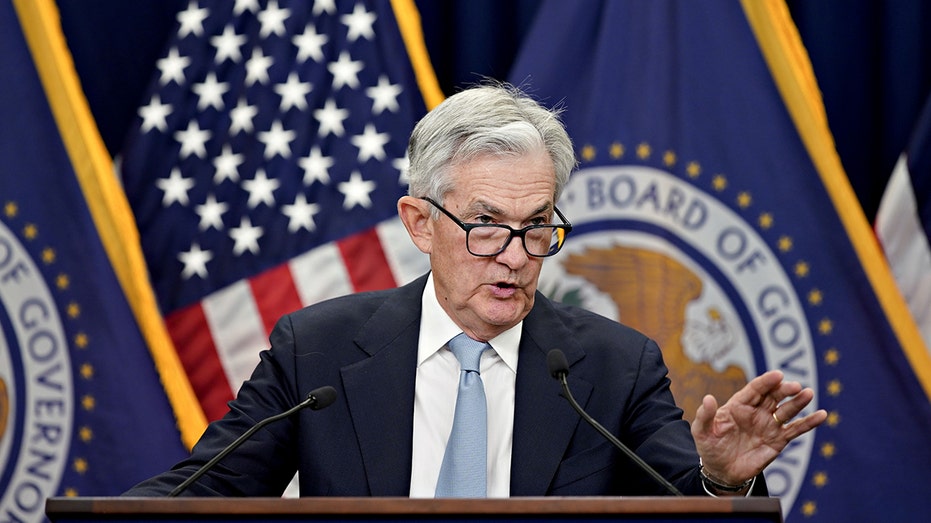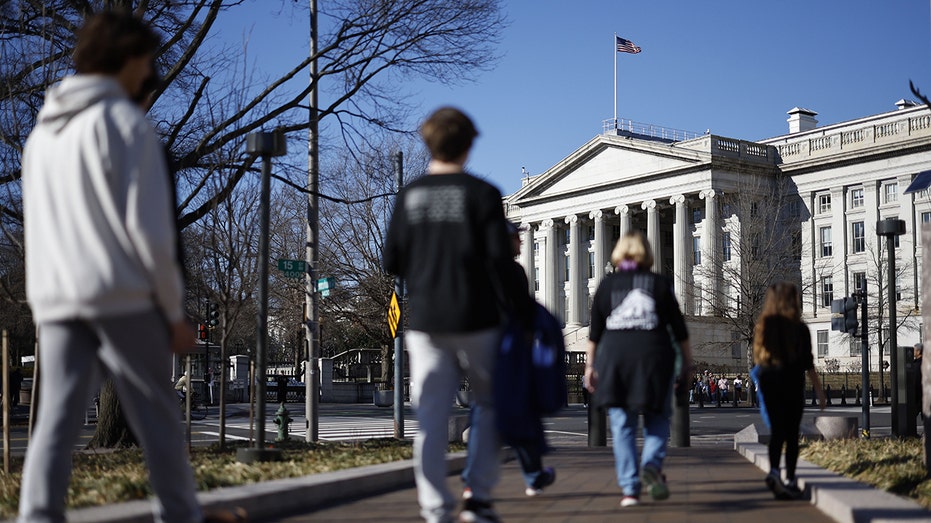Fed raises interest rates a quarter point, hints at possible pause
Fed hikes interest rates to 16-year high but signals end to tightening campaign
WATCH LIVE: Fed Chair Powell holds press conference after policy meeting
Wall Street investors will be focused on any additional clues about what comes next in the central bank's inflation fight.
The Federal Reserve on Wednesday raised its benchmark interest rate by a quarter of a point but opened the door to a long-awaited pause in its most aggressive tightening campaign since the 1980s.
The widely expected and unanimous decision puts the key benchmark federal funds rate at a range of 5% to 5.25%, the highest since August 2007, from near zero a little more than one year ago. It marks the 10th consecutive rate increase aimed at combating high inflation and slowing the economy.
But for the first time in a year, policymakers signaled that future rate increases are not a given, suggesting that additional policy moves will hinge on "incoming information."
"In determining the extent to which additional policy firming may be appropriate to return inflation to 2% over time, the Committee will take into account the cumulative tightening of monetary policy, the lags with which monetary policy affects economic activity and inflation, and economic and financial developments," the Fed said in its post-meeting statement.
JEROME POWELL'S FAVORITE BOND MARKET GAUGE FLASHES RECESSION WARNING SIGN
The statement omitted a previous sentence that said the "Committee anticipates that some additional policy firming may be appropriate" for inflation to return to the Fed's 2% goal, but it offered little clarity beyond that.
"A decision on a pause was not made today," Chair Jerome Powell told reporters during a post-meeting press conference in Washington, D.C., though he noted the "meaningful" change in the official statement.
"We're no longer saying that we 'anticipate,'" he said. "We'll be driven by incoming data, meeting to meeting. We'll approach that question at the June meeting."
The meeting comes in the shadow of continued volatility within the financial sector after the implosion of a third U.S. bank this week. First Republic, a San Francisco-based bank that catered to the wealthy, was seized by federal regulators and sold to JPMorgan Chase on Monday, reigniting fears of a credit crunch for U.S. households.
FIRST REPUBLIC COLLAPSE ADDS TO CREDIT CRUNCH WOES FOR AMERICANS

Jerome Powell (Al Drago / Bloomberg via Getty Images / File / Getty Images)
During a credit crunch, banks significantly raise their lending standards, making it difficult to get a loan. Borrowers may have to agree to more stringent terms like high interest rates as banks try to reduce the financial risk on their end. Fewer loans, in turn, lead to less big-ticket spending by consumers and businesses.
While that could help the Fed in its fight to tamp down stubbornly high inflation, it also raises the risk of a recession this year. The Fed mostly reiterated its statement from March, warning that economic fallout from tighter credit conditions remains "uncertain."
"Tighter credit conditions for households and businesses are likely to weigh on economic activity, hiring, and inflation," the Fed's statement said. "The extent of these effects remains uncertain. The Committee remains highly attentive to inflation risks."

Pedestrians walk near the U.S. Treasury in Washington, D.C., on Dec. 30, 2022. (Ting Shen / Bloomberg via Getty Images / Getty Images)
CLICK HERE TO READ MORE ON FOX BUSINESS
Inflation showed welcome signs of cooling in March, according to Labor Department data released last month. But core prices pointed to strong underlying price pressures that are still bubbling beneath the surface. The consumer price index remains about three times higher than the pre-pandemic average, underscoring the persistent financial burden high prices have placed on millions of U.S. households.
But the Fed anticipates inflation will remain sticky for some time, ending the year around 3%, Powell said. He noted "in that world, it would not be appropriate" to cut interest rates.
"That's not our forecast," he said.
The labor market has also remained resilient even in the face of higher interest rates. New data released on Wednesday morning by ADP showed that private employers added 296,000 jobs last month, the highest monthly increase since July 2022.





















